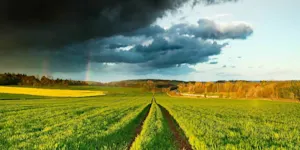What Makes This Word Tick
"Ember" is a word that harks back to the days when our ancestors gathered around the fire. It's the glowing, smoldering remains of a fire's warmth, those last bits holding onto the heat after the flames have faded. It's a cozy word, perfect for a chilly night when the fire's just about out, but you're still basking in the gentle glow.
If Ember Were a Person…
If "Ember" were a person, they’d be the kind of friend who stays late at a party, ensuring everyone’s glass is full and hearts are warm. This person probably appreciates the beauty in things that others might overlook—like sunsets and good conversations. They'd have a twinkle in their eye, exuding a quiet confidence.
How This Word Has Changed Over Time
Originally derived from Old English "æmerge," the essence of "ember" has stayed relatively consistent through the years. While the word's core meaning hasn't shifted drastically, its use has expanded metaphorically to represent endurance, the remnants of past emotions, and the promise of renewal as new fires are kindled from the lingering heat.
Old Sayings and Proverbs That Use Ember
"It's better to leave the embers smoldering than rekindle an old flame" is one such saying that teaches us about moving on instead of reigniting the past. Even when the fires seem out, a single ember can reignite those old emotions.
Surprising Facts About Ember
Embers can reach temperatures of up to 1,600 degrees Fahrenheit, even when they appear to be just warm remnants of a fire. Despite their appearances, these tiny powerhouses can start new blazes, attended properly. Nature's little reminder never to underestimate the small things.
Out and About With This Word
"Ember" is a word you might encounter at campfire gatherings, winters by the hearth, or even in poetry that evokes a sense of nostalgia and warmth. It’s particularly beloved by those who find joy in the flicker of a campfire and the stories birthed from its glow.
Pop Culture Moments Where Ember Was Used
"Ember McLain," a character from the animated series "Danny Phantom," used her fiery persona to ignite the screen. In music, songs often evoke embers as symbols of lingering emotions or love that refuses to die out.
The Word in Literature
An "ember" can often be found glowing softly in the pages of classic novels, where it symbolizes endurance, fading hope, or unyielding passion. Literature loves to capture the gentle glow of an ember as a metaphor for resilience against the passing of time.
Moments in History with Ember
Think of those cold winter nights in historical meetings—like the famed Continental Congress. An ember might have provided the only light and warmth as pivotal decisions were made, symbolizing hope during uncertain times and the promises of what was to come.
This Word Around the World
In Japan, embers are called "nensho," often associated with traditional tea ceremonies, symbolizing purity and reflection. In certain cultures, embers are used in rituals for new beginnings by reigniting old fires.
Where Does It Come From?
The word "ember" roots back to the Old English "æmerge," which echoes the beautiful transformation from the Danish "emmer." In its essence, it's old enough to remind us of universal experiences warmed by the fire.
How People Misuse This Word
People might use "ember" interchangeably with "ash," but while ashes are the remnants after combustion, embers still hold potential energy—just the right breath away from roaring back to life.
Words It’s Often Confused With
Ash: This would be the remains after the embers have expired.
Coal: Often confused due to its role in fires, but this is a fuel source.
Cinder: Typically a piece of partly burned coal or wood.
Additional Synonyms and Antonyms
Synonyms include spark, cinder, and glow. Antonyms might be ice or frost, representing the opposite of warmth and heat.
Want to Try It Out in a Sentence?
"Even as the campfire dimmed, a single ember continued to flicker, casting a warm glow over the gathering and whispering promises of new fires yet to come."
















